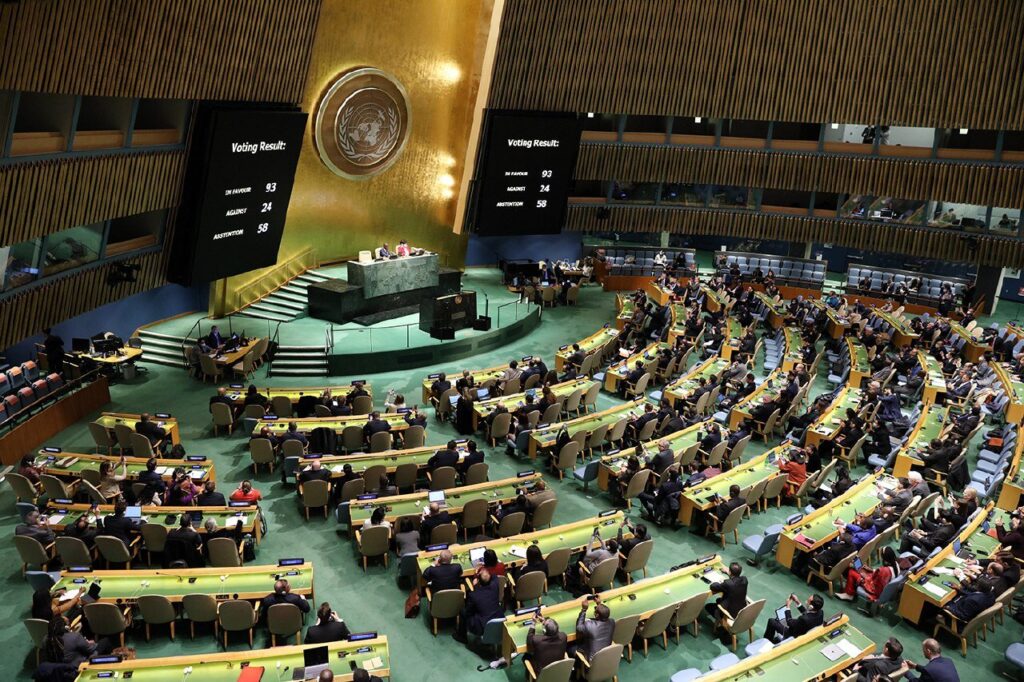Madrid – Iran is at war. A war that was not sought or wanted, but accused of the continued escalation of tensions that Israel has fueled over the years through attacks on its nuclear, military and civilian infrastructure.
These attacks reveal the explicit intention to not only jeopardize regional stability, unless they are aiming for dialogue or diplomatic resolution, but also undermine Iran’s strategic capabilities through operations that violate the fundamental principles of international law.
Israeli attacks and violation of international law
Recent Israeli attacks on Iranian nuclear facilities like Natanz and Fordaw cannot be dismissed as isolated cases or legitimate self-defense acts. According to experts and international groups, they constitute a clear violation of Article 2(4) of the UN Charter, which prohibits the use of force or threat to the territorial integrity and sovereignty of Member States.
These nuclear sites are under the strict supervision of the International Atomic Energy Agency (IAEA), part of a peace programme declared since 2003, and are also recognized by independent reporting. The attack also violates Article 12 of the IAEA Act. This expressly prohibits hostile actions against nuclear facilities under international safeguards. The risks raised are not only political, but also environmental and humanitarian in already vulnerable regions. The IAEA itself warns of the possibility of a radioactive disaster in the event of serious damage. This appears to be clearly ignored by the invaders.
Furthermore, Iran’s sovereignty was further compromised by airspace and violations of neighboring countries such as Iraq and Syria, adding another layer of illegality and regional destabilization.
Iran’s response: legitimate defense based on international law
From an international law perspective, Iran’s response to these attacks is not only understandable, but completely legal. Article 51 of the UN Charter disgraces the state’s inherent right to self-defense against armed attacks. This right is especially important when the Security Council, which is tasked with maintaining international peace and security, is paralyzed by political denial.
Iran’s response, which included the launch of ballistic missiles against strategic targets such as Israel’s military and Haifa’s major oil refineries, can be seen within this legitimate right of self-defense. Despite Israeli censorship, verified footage circulated by international media shows the serious damage caused by these defensive actions and is intended to send a clear message that aggression is not unanswered.
Western hypocrisy and double standards of international law
The conflict requires Israel to move beyond the prevailing simple narratives of much of the Western media portrayed as victims of legitimate defenses, while Iran is portrayed as an unfair invader. This story distorts reality and hides offensive legal truths. It is the selective and double application of international law consistent with geopolitical interests.
Although Israel is not a party to Roman law that governs the International Criminal Court, it has carried out actions that could be classified as an international crime, including attacks that endanger the civilian population and violate the sovereignty of other states. But it enjoys unwavering political support from the US and other western allies, preventing the effective enforcement of international law and accountability.
This double standard promotes distrust and resentment in areas where law is perceived as a tool to provide dominant power. Conversely, Iran’s defense is supported by clear and universally recognized international norms.
This conflict reveals how international law is classified to justify selective intervention, while justifying Western hegemony and minimizing or silence violations by allies. This is a criticism promoted by Professor Costas Duginas, who denies the global legal system as a means of supporting Western political and military rule.
Security Council’s deadlock and self-defense rights
The UN Security Council, which is responsible for maintaining international peace and security, demonstrates that it cannot act effectively against these attacks due to veto and political lockdowns. This reality justifies Iran’s right to exercise self-defense under Article 51 of the UN Charter. This recognizes the state’s privilege to take military measures to protect its existence from non-existent attacks, particularly when diplomatic and multilateral channels are stagnant due to geopolitical interests.
The current escalation did not occur in vacuum. It is the product of years of tension, sanctions and unilateral hostility that has made Iran a constant target of military and political pressure. Washington-backed Israel maintains an ongoing plan to dismantle Iran’s nuclear and military capabilities, representing an existential threat to Tehran.
The cold war between the two countries escalated into open conflicts with regional and international consequences that could further destabilise the Middle East.
Conflicts rooted in geopolitics and economic interests
This conflict needs to be analyzed through a critical lens that recognizes the dynamics of the imperialists and neocolonials that underlie the region. The United States and its allies use international law as a tool to justify strategic and economic interests, criminalizing states that resist this hegemony.
The war with Iran is essentially a struggle for geopolitical and energy control, with international law manipulating to justify selective attacks and catastrophic economic sanctions.
From an international law perspective, Iran’s response to Israel’s attacks is fully justified as a legitimate exercise of self-defense against sovereignty and unprovoked attacks that violate the fundamental principles of the UN Charter and the International Nuclear Treaty.
The Security Council, unable to act in the face of these violations, underscores the urgent need to exacerbate the international crisis and reform the powerless multilateral system before the hegemony of certain states. Recognizing and respecting Iran’s right to self-defense is not only a legal issue, but an essential step in preventing the war imposed from becoming a greater catastrophe.

